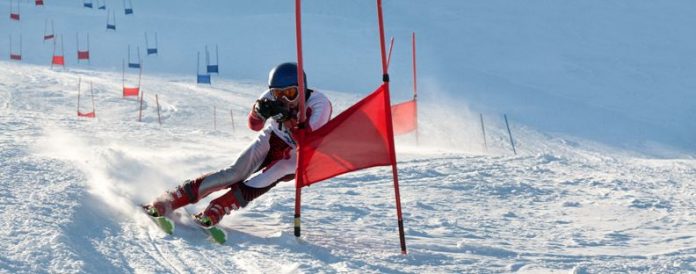If you want to ski downhill, you have to find a way to the top of the slope or the mountain. There is no way around this, but there are relatively few options.
For many, this is a problem. The idea of sitting on a small piece of wood or metal and being lifted thousands of feet into the air is unthinkable for some people. These are called chair lifts.
If you are just skiing on the bunny slopes, and on some intermediate slopes, you might be able to use the rope pull that is usually available.
This is a mechanized rope pulley that you simply hang onto, and it drags you up the mountain. If you let go, it’s no big deal, you just ski on down to the bottom again and start over.
If the rope pulley won’t get you where you want to be, and you still don’t want to sit on that small plank and go thousands of feet into the air, a tram may be available.
Trams still go thousands of feet in the air, but they are bigger and enclosed. Several people fit into one tram. Gondolas may also exist. This is the same as a tram, but it usually holds fewer people.
Unless you will be arriving at the top of the mountain by climbing, helicopter, horseback, or donkey, those are the only ways to the top of the mountain.
Even if you are able to drive to the top of the mountain and then ski down, you still need a way back up to your car.
Now, let’s look at the potential dangers. The chair, tram, or gondola cable could snap. It’s possible, but highly unlikely. Those are giant cables that are well maintained and inspected regularly.
Although still unlikely, the chances of the chair, tram, or gondola becoming detached from the cable are greater. It’s unlikely, but it has happened.
Overall, being on the lift, no matter what type of lift it is, is no more dangerous than riding in an airplane.
Yes, there is the risk of something going wrong, but the chances of it happening are minimal.
Most lift related accidents do not occur during the ride up the mountain. They occur when the lift is being loaded or unloaded at the beginning or the end.
This may happen if a lift operator fails to stop the lift when a person falls down in front of it, as is common with chair lifts.
The chair lifts do not stop for loading or unloading. You stand in front of where the chair lift will come, and when it is behind you, you simply sit down and away you go. If you sit down too early, you will fall to the ground, and the chair may hit you.
When unloading, again, the lift does not stop. Instead, when your skis touch the ground, you simply stand and ski away from the lift.
Again, if you fall, you will likely be hit by the lift, and the lift operator must either stop the lift, or get you out of the way.

